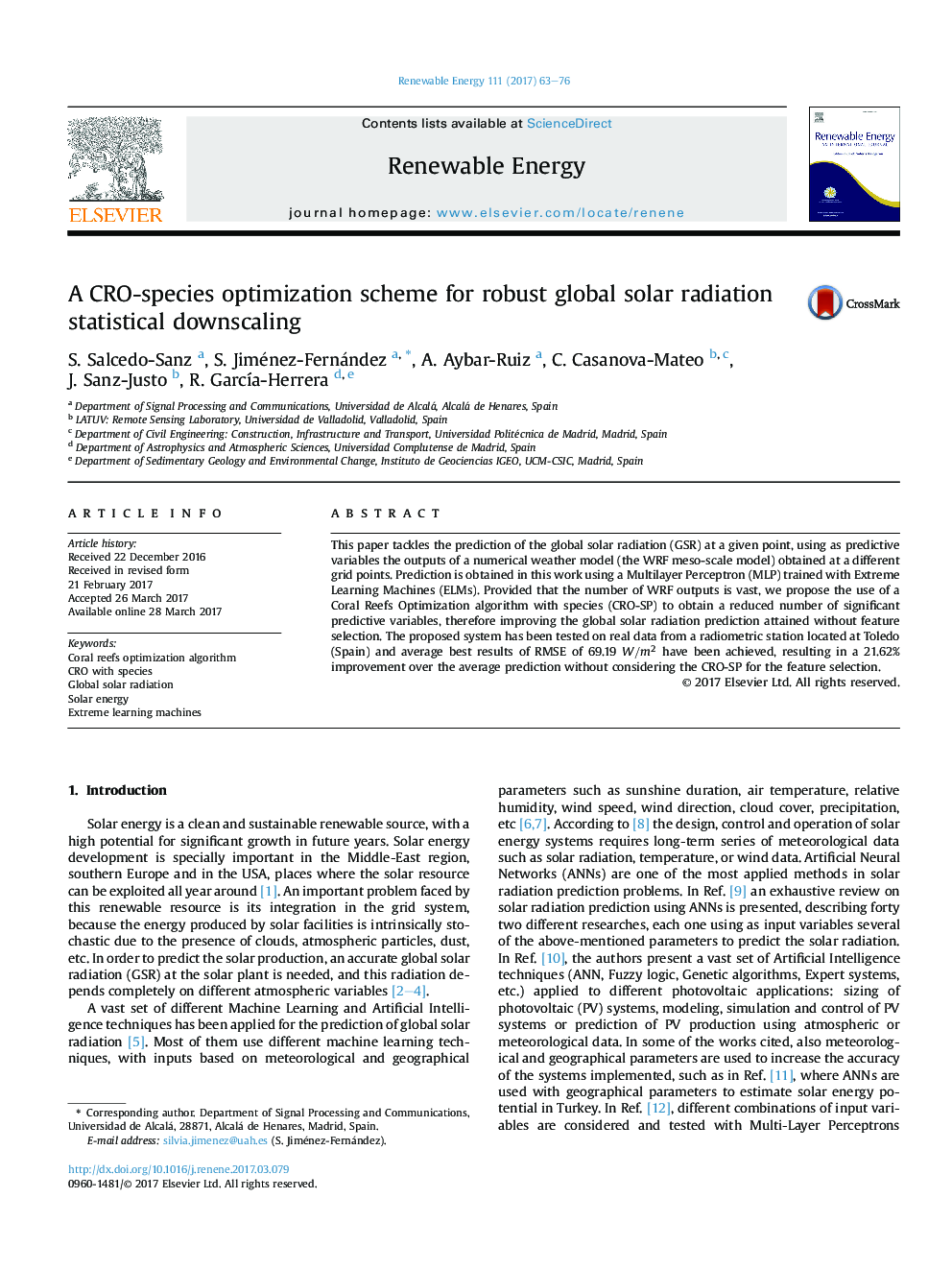| Article ID | Journal | Published Year | Pages | File Type |
|---|---|---|---|---|
| 4926285 | Renewable Energy | 2017 | 14 Pages |
Abstract
This paper tackles the prediction of the global solar radiation (GSR) at a given point, using as predictive variables the outputs of a numerical weather model (the WRF meso-scale model) obtained at a different grid points. Prediction is obtained in this work using a Multilayer Perceptron (MLP) trained with Extreme Learning Machines (ELMs). Provided that the number of WRF outputs is vast, we propose the use of a Coral Reefs Optimization algorithm with species (CRO-SP) to obtain a reduced number of significant predictive variables, therefore improving the global solar radiation prediction attained without feature selection. The proposed system has been tested on real data from a radiometric station located at Toledo (Spain) and average best results of RMSE of 69.19 W/m2 have been achieved, resulting in a 21.62% improvement over the average prediction without considering the CRO-SP for the feature selection.
Keywords
Related Topics
Physical Sciences and Engineering
Energy
Renewable Energy, Sustainability and the Environment
Authors
S. Salcedo-Sanz, S. Jiménez-Fernández, A. Aybar-Ruiz, C. Casanova-Mateo, J. Sanz-Justo, R. GarcÃa-Herrera,
